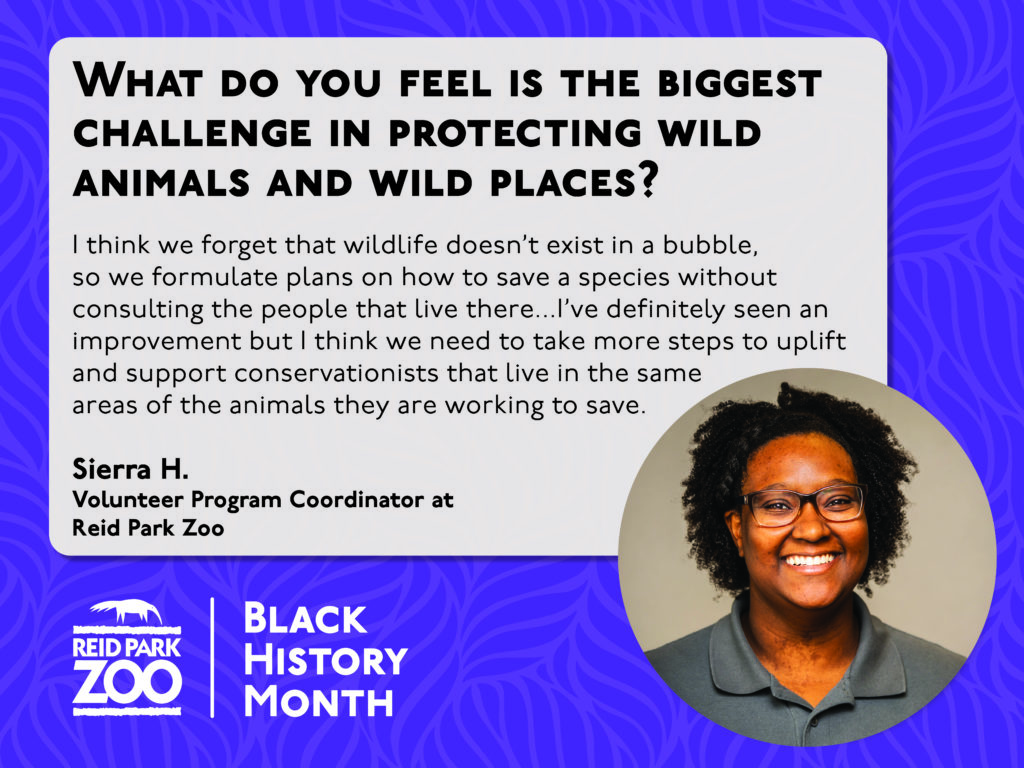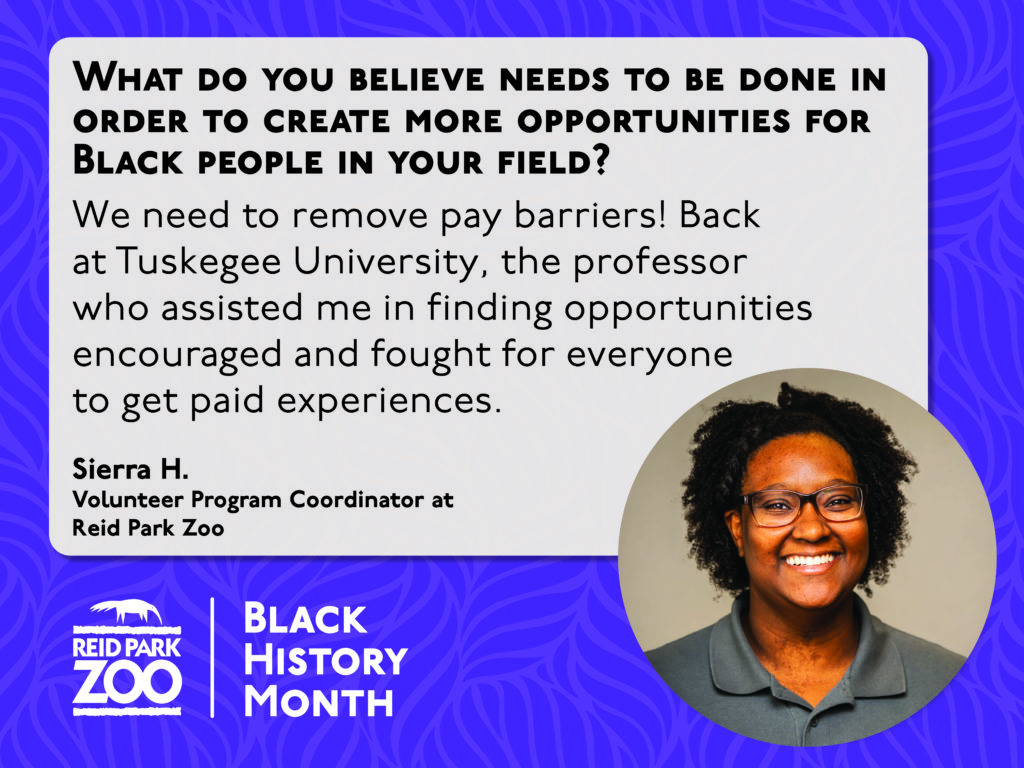Black in Nature: Featuring Sierra Horsey

This post is part of “Black in Nature: Tackling Diversity in Conservation,” a Black History Month series giving Black people who work in animal care and conservation a platform to share their experiences and spark the conversation necessary for change. Learn more here.
Sierra Horsey is the Volunteer Program Coordinator at Reid Park Zoo. Her experience highlights the barriers that exist for young people trying to join the conservation field, especially for people from marginalized communities. She feels that the high standards of certification through the Association of Zoos and Aquariums (AZA) can unintentionally create these barriers by often requiring unpaid experience before offering paid experience.
“The ability to intern for free is a luxury many cannot afford,” shared Sierra, “so AZA facilities are excluding passionate people just because they can’t afford to work for free. Removing this pay barrier would open up the field to everyone who is passionate about animals and conservation.”
Sierra learned about the issues surrounding unpaid work while in university where one of her mentors encouraged students to seek paying positions.
“Back at Tuskegee University, the professor who assisted me in finding opportunities encouraged and fought for everyone to get paid experiences. She drilled into us that we were too good to work for free and this is the mindset that all of us should have. We should not accept that working in the zoo field is a highly rewarding but low paying job.”
Sierra recognizes that her experience was different from the norm because of this teacher. She notes that many people who attend large, often predominately white, institutions do not have this luxury. Sierra also needed to move across the country for her first paid position before moving again for the next. She recognizes that these large moves were only possible because of the support of her family — something not available to everyone which can create another barrier to success.
Sierra also emphasizes the importance of representation in increasing diversity in conservation. She shares that “aside from pay barriers, we also need to highlight black people and other people of color who work in animal or conservation fields. Children often understand they can do something when they see it. So it’s important we show them black doctors, black CEOs, black bakers, black artists, and black conservationists.”
Representation influences children and adults’ perceptions of suitable careers. While growing up Sierra had different ideas about her future, and says that it took time for her family to understand her current career choice.
“It’s taken my family years to understand my field of work. I think I disappointed them when I changed from wanting to be a veterinarian to wanting to work in education/volunteers at a Zoo. So for a while, being in this field created a lot of doubt and stress because I constantly had to defend something that I was extremely passionate about, and something I knew I was good at. The longer I am in the field, the more confident I am in my decision,” shares Sierra.
In her current position Sierra works to educate the public about conservation issues around the world. She explains that conservation is complex and deeply connected to human issues. Involving local communities in conservation actions is the best recipe for global success.
“I think we forget that wildlife doesn’t exist in a bubble, so we formulate plans on how to save a species without consulting the people that live there. While not all conservationists are white, it often comes off as a white savior complex — that poor nations need educated, white men to tell them how to manage their lands and the animals that live there. I’ve definitely seen an improvement but I think we need to take more steps to uplift and support conservationists that live in the same areas of the animals they are working to save.”
We are so grateful to have Sierra on our team here at Reid Park Zoo, and we are proud of her work in education, volunteer coordination, and conservation. Sierra works closely with the Zoo’s teen volunteers and is inspiring the next generation of wildlife advocates to create positive changes throughout the field.

